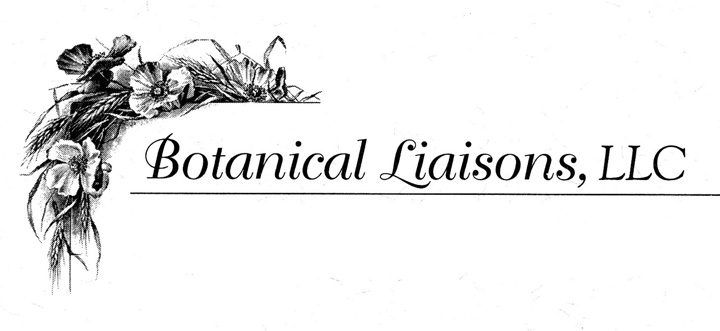What We've Achieved
Established the first herbarium in the natural products industry in 1984.
First supplier of authenticated vouchers for clients.
Developed the first class on plant identification by sensory evaluation at Bastyr University.
Developed sustainable harvesting protocols for US Fish and Wildlife and US Forest Service research for Actea racemosa and Ligusticum porteri.
Coauthored the 2006 GACP, GAP guidelines and updated them in 2017 for AHPA
Coauthored the Kauai’i Declaration
Co-developed phone application solutions for Farmer to Facility, See TagOne partners.
Coauthored International Ethnobotanical Ethical guidelines for the Society for Economic Botany.
Co authored with certifying bodies audits forms for retailers Supplement Safety Compliance Initiative.
Has author several book chapters and articles on Ethnobotany, sustainable supply, Ethnobotanical plant sourcing and discovery of new products.
Has authored several GRAS documents
Created the IDDI trademarks including, IDDI Verified™, Spec Verified™, ESR Verified™-Ethical Sourcing tools.
Botanical Liaisons, LLC Executive Director, Trish Flaster, MSc., implemented one of the first herbaria in the herb industry in 1985. It was the importance of knowing what the starting materials were as part of a quality program in manufacturing that drove her insistence to have herbaria for identifcation, now required by FDA cGMP. Today, Botanical Liaisons, LLC is one of the few companies that provides authenicated botanical reference materials to manufacturers, regulatory agencies, and academicians.
What are botanical reference materials?
Botanical reference materials include a voucher specimen, a representative sample of the plant, often with an inflorescence, flower, pressed and preserved on archival paper. The label on the specimen informs the viewer of the date and location of the harvest of the voucher and can be tracked back to the collector. Accompanying the voucher is one pound or kilo of the economically valuable plant part of interest.
When is this useful?
A voucher specimen can be used in a court of law to verify the starting material in the case of adverse reactions or other legal consumer questions. It is used as a reference in primary research, as part of standard operating procedures, as a marketing tool, and to educate staff, consumers, and customers.
Have more specific questions? Contact Trish Flaster , tflastersprint@earthlink.net
Our Mission
MISSION
Botanical Liaisons, LLC mission is to establish a successful value-based business supporting biological and cultural diversity by effectively adapting traditional intellectual property into socially sound projects which are mutually beneficial Since 1973 Botanical Liaisons, LLC has been developing botanical standards for the natural products horticultural and pharmaceutical industries. They focus on supply chain, ingredients based on Ethnobotanical knowledge and research tailored to the clients goals.
Botanical Liaisons is dedicated to embrace the human world community by engaging in projects that offer innovative pathways to economic and environmental development of a successful value-based botanical business.
The botanical projects initiated by Botanical Liaisons, LLC must support the continued conservation of biological diversity while honoring the self-determination of the local human communities. This is most critical when applying to supply chain issues.
Botanical Liaisons, LLC is committed to share its profits with those who offer their intellectual property and sound land-use management. These profits must be distributed in a method that allows native people to sustain their cultures through equal access to prosperous opportunities of their choosing (e.g. healthcare, education, housing, safe environment, and financial security)
Botanical Liaisons, LLC will offer a strong link to bridge traditional knowledge to that of our current market economics to establish long-term harmonious relationships.

